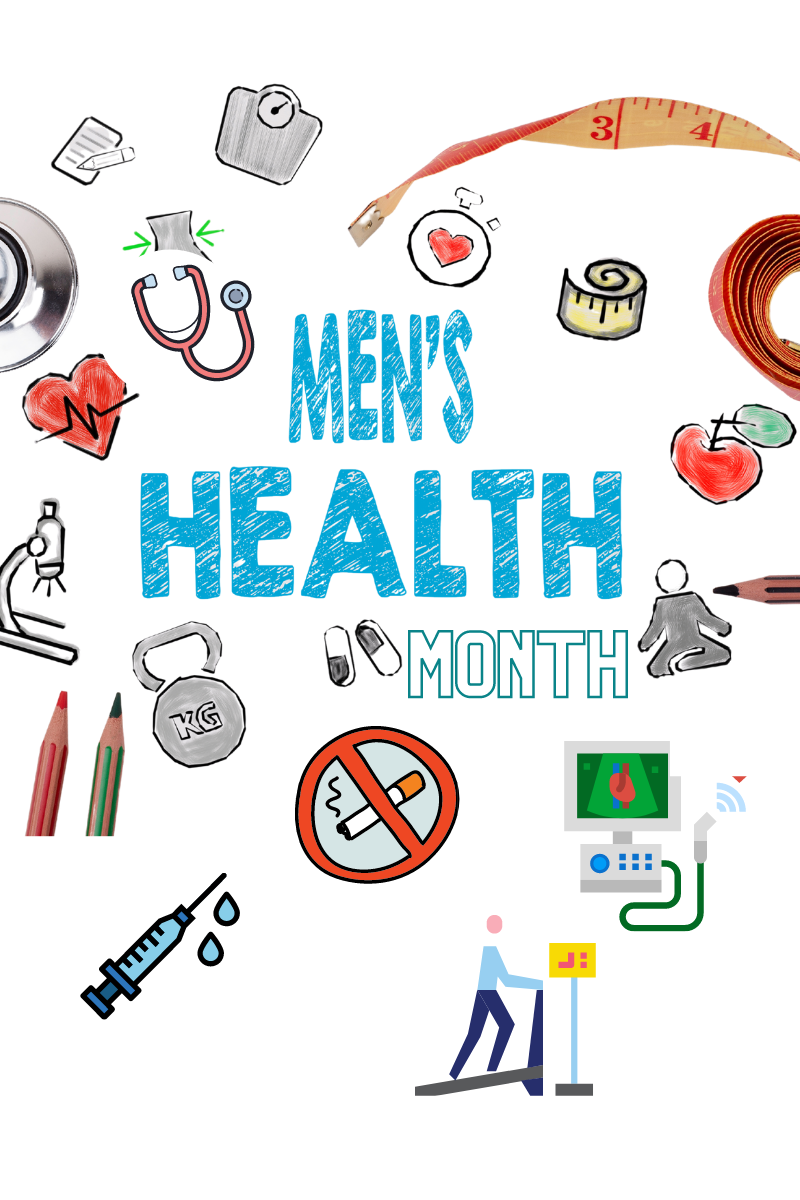 In the United States, June is designated as Men’s Health Month. The goal is to raise awareness about the ways men can improve and maintain their health. The five most important things that men can do for their health are to be tobacco free, stay physically active, eat a healthy diet, maintain a healthy weight for your height, and get recommended screening tests. In addition to the top five, there are other health behaviors that can increase your likelihood of living a long, healthy life. Below are details about important health behaviors for men:
In the United States, June is designated as Men’s Health Month. The goal is to raise awareness about the ways men can improve and maintain their health. The five most important things that men can do for their health are to be tobacco free, stay physically active, eat a healthy diet, maintain a healthy weight for your height, and get recommended screening tests. In addition to the top five, there are other health behaviors that can increase your likelihood of living a long, healthy life. Below are details about important health behaviors for men:
Be Tobacco Free – This includes smokeless tobacco products as well. See our articles about Smoking and Vaping , and reach out to a Be Well Solutions Health Coach to enroll in our Kick Nic smoking cessation program.
Stay Physically Active – Aside from being tobacco free, exercising is the best thing that you can do for your health. If you can spend 150-300 minutes a week on exercise, you will be well on your way to a healthy lifestyle.
Eat a Healthy Diet – When it comes to fruits and vegetables, 5 a day will keep you alive, but 9 is divine! Also, whole grains, nuts, skinless poultry, fish, and fat free or low-fat dairy products are good choices for daily consumption. Try to stick to foods in their whole, natural form.
Maintain Healthy Weight for Your Height – Choose healthy foods for daily consumption, limit simple sugars and saturated fats, and watch your portion size to maintain a healthy weight. Also, try to spend as much time as you can engaging in active behaviors. BWS created the Weigh of Life program to aid in your healthy lifestyle goals.
Relieve Stress – Dedicate time each day to reduce your stress. Everyone is different. Some people like to breathe deeply for five minutes, others like to exercise, and some prefer to read or complete a crossword puzzle. Do what is relaxing to YOU!
Protect Yourself from the Sun – Wear sunscreen between 10:00 am and 4:00 pm on skin exposed to direct sunlight. Ten to fifteen minutes of direct sun exposure before 10:00 am or after 4:00 pm per day can help you prevent Vitamin D deficiency.
Follow Safety Practices – Wear your seatbelt, drive the speed limit, and follow other traffic safety laws when driving or riding in a car with others. Wear a helmet if you are riding a motorcycle or bicycle.
Manage Chronic Conditions – Take prescribed medications exactly as prescribed by your doctor and follow your doctor’s other health behavior recommendations to manage your condition(s). Be a Smart Patient!
Get Recommended Screening Tests – Health Screening, Cancer Screening, and Immunizations.
